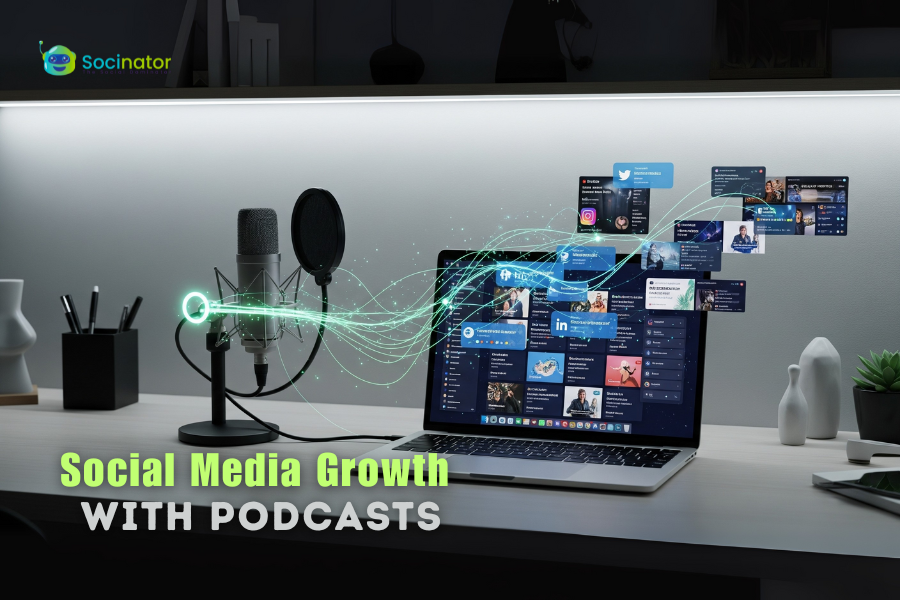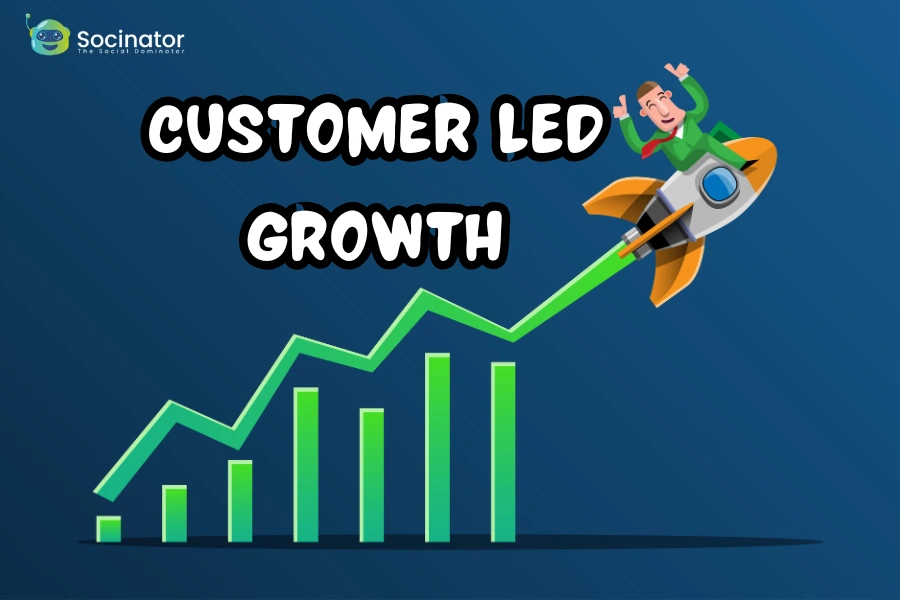A well-thought-out social media plan template is crucial for businesses looking to thrive online. A structured plan enhances your presence and ensures that your efforts are targeted and effective. With a clear strategy in place, you can focus on creating meaningful content, engaging with your audience, and achieving your business objectives.
A structured strategy provides a roadmap to navigate the complexities of social media marketing. It helps you stay organized, track progress, and adapt to changing trends and audience behaviors. Without a plan, your social media efforts can become scattered and ineffective, leading to missed opportunities and wasted resources. On the other hand, a carefully crafted social media plan allows you to make informed decisions, optimize your efforts, and ultimately drive better results.
It doesn’t matter if you’re a small business owner looking to increase brand awareness or a marketing professional aiming to boost engagement and conversions, these ten essential social media plan templates will elevate your approach and keep you ahead of the competition. From organizing your content calendar to automating your social media tasks, each template offers valuable tools and insights to enhance your strategy.
Let’s dive into these indispensable templates and discover how they can transform your social media marketing efforts. By the end of this blog, you’ll have a comprehensive toolkit to build a robust and effective social media plan that aligns with your business goals.
Listen To The Podcast Now!
Social Media Plan: Content Calendar Template
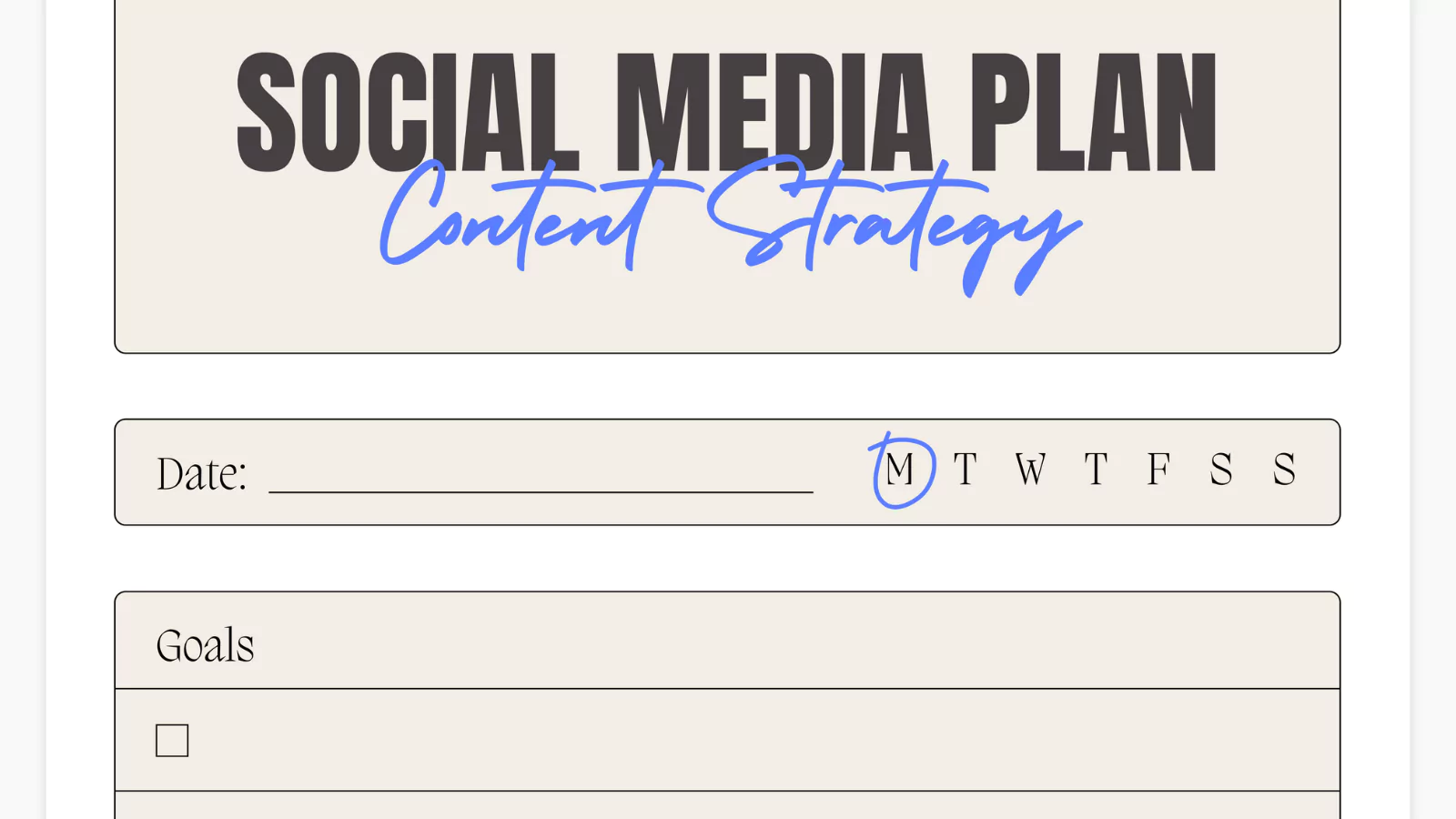 A content calendar is essential for maintaining consistency and organization in your social media plan. Here are the key steps to create one:
A content calendar is essential for maintaining consistency and organization in your social media plan. Here are the key steps to create one:
- Define Goals: Identify your objectives (e.g., brand awareness, engagement).
- Choose Format: Select a calendar format that suits your needs (e.g., digital, spreadsheet).
- Identify Key Dates: Mark essential dates and events.
- Create Categories: Organize content into themes (e.g., promotional, educational).
- Plan Schedule: Determine posting frequency and allocate specific days.
- Brainstorm Ideas: Generate content ideas for each category.
- Assign Tasks: Delegate responsibilities to team members.
- Incorporate Visuals: Plan images and videos for posts.
- Schedule Posts: Use tools to automate and plan posts.
- Monitor Performance: Review metrics and adjust the calendar as needed.
A well-structured content calendar ensures your social media channels are always active and aligned with your goals.
Social Media Plan: Campaign Template
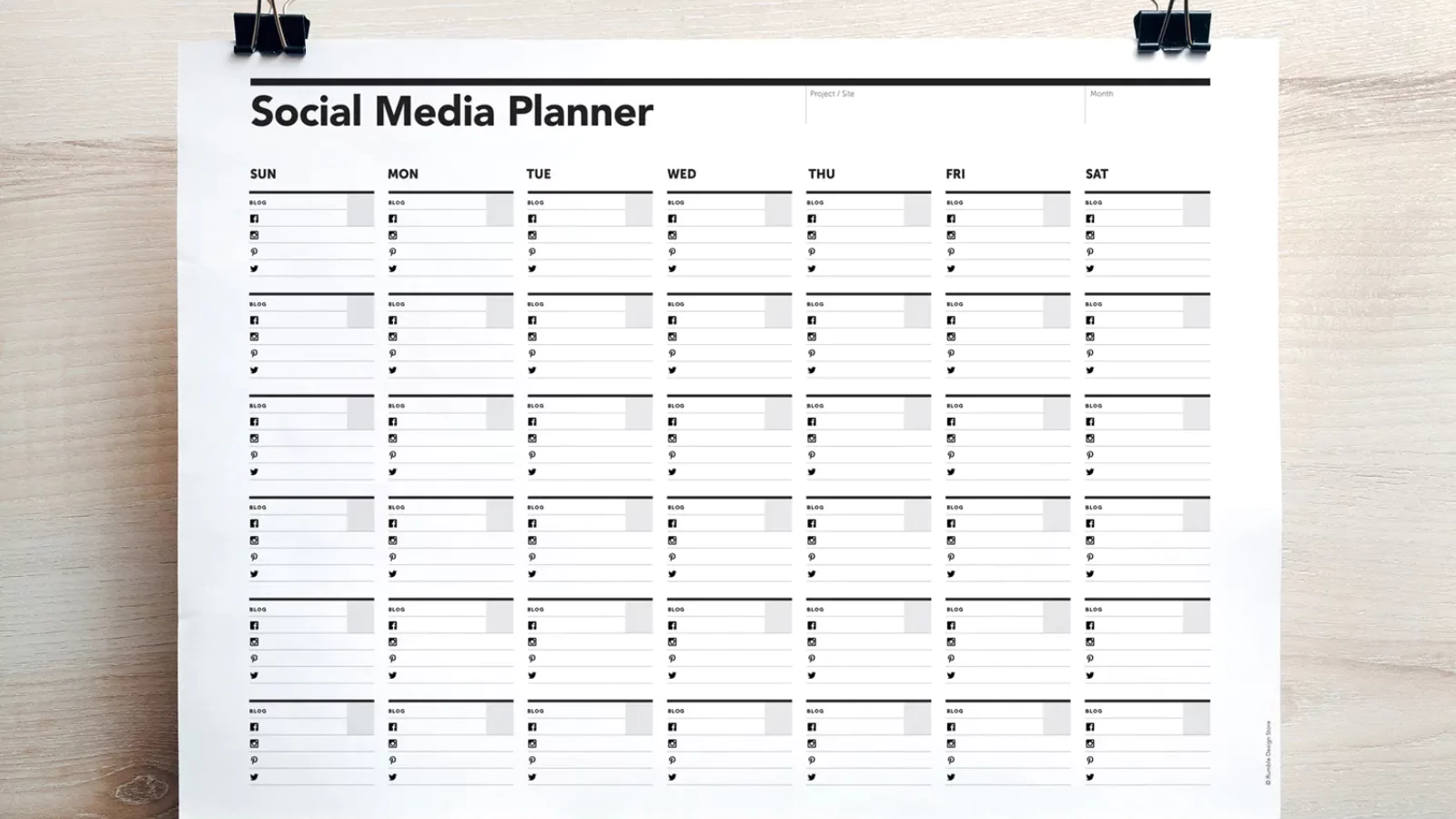 If you are planning a campaign, this template will guide you through each step:
If you are planning a campaign, this template will guide you through each step:
- Set Objectives: Clearly define your campaign goals, such as increasing brand awareness or generating leads.
- Identify Audience: Conduct thorough research to understand your audience’s demographics, interests, and behaviors.
- Develop Content Strategy: Plan the types of content you will create, such as videos, blog posts, or infographics.
- Create Timeline: Outline key milestones and set deadlines to keep your campaign on track.
- Allocate Resources: Assign specific tasks to team members and allocate the necessary budget.
- Craft Content: Develop engaging, high-quality content that aligns with your objectives and resonates with your audience.
- Schedule Posts: Use scheduling tools to plan and automate your content distribution for consistency.
- Engage Audience: Monitor audience interactions and actively respond to comments and messages.
- Track Metrics: Measure key performance indicators such as engagement, reach, and conversions to assess campaign success.
- Analyze Results: Review campaign data, identify areas for improvement, and refine your strategy for future success.
With this template, you can create impactful campaigns that resonate with your audience and drive results. In the next section, we will explore how a monthly social media plan template can keep your strategy organized and cohesive.
Monthly Social Media Plan Template
 A monthly plan offers a clear overview of your social media activities, keeping your strategy organized and cohesive. Here’s how to create one:
A monthly plan offers a clear overview of your social media activities, keeping your strategy organized and cohesive. Here’s how to create one:
- Outline Content Themes
- Define themes for each week or month.
- Ensure variety to keep your audience engaged.
- Set Posting Schedules
- Plan the frequency and timing of your posts.
- Maintain consistency to build trust with your audience.
- Plan Engagement Tactics
- Decide how you will interact with your audience (e.g., replying to comments, running polls).
- Allocate time for active engagement.
- Include Key Dates
- Mark important dates and events.
- Plan special content around these dates.
- Assign Responsibilities
- Delegate tasks to team members.
- Ensure everyone knows their role.
- Monitor Performance
- Track metrics to evaluate the effectiveness of your plan.
- Adjust your strategy based on data insights.
A comprehensive monthly plan ensures that everyone on your team is aligned and your social media efforts are focused. Moving on, let’s discuss the importance of conducting a social media audit to evaluate your current efforts and identify areas for improvement.
Social Media Plan: Audit Template
 Understanding what is working and what is not is essential for improvement. Here is how to create a social media audit template:
Understanding what is working and what is not is essential for improvement. Here is how to create a social media audit template:
- Inventory Your Accounts
- List all your social media profiles.
- Ensure account details and branding are consistent.
- Analyze Performance Metrics
- Review key metrics such as engagement, reach, and follower growth.
- Identify patterns and trends over time.
- Evaluate Content Performance
- Assess which types of content are most effective.
- Note high-performing posts and underperforming ones.
- Examine Audience Demographics
- Analyze your audience demographics and interests.
- Ensure your content aligns with your target audience.
- Review Posting Frequency
- Compare your posting frequency with engagement rates.
- Adjust your schedule if necessary for optimal performance.
- Assess Competitor Activity
- Benchmark your performance against competitors.
- Identify opportunities and gaps in your strategy.
- Identify Strengths and Weaknesses
- Note areas where you excel and where you need improvement.
- Set actionable goals for enhancement.
- Track Progress
- Regularly review and update your audit.
- Measure progress against your goals and adjust as needed.
A thorough social media audit helps you understand your current efforts, refine your strategy, and achieve better results. Next, explore the social media content plan template, which will help you craft engaging and relevant content for your audience.
Social Media Plan: Content Template
 Creating engaging content is vital for social media success. Here is a concise guide to a social media content plan template:
Creating engaging content is vital for social media success. Here is a concise guide to a social media content plan template:
- Brainstorm Ideas
- Generate content ideas that resonate with your audience.
- Involve your team in diverse perspectives.
- Plan Content Mix
- Balance different types of content (visuals, articles, videos).
- Ensure variety to maintain engagement.
- Align with Brand Voice
- Ensure consistency in posts reflecting your brand voice and values.
- Schedule Content
- Use a content calendar to organize and plan posts.
- Engage with Audience
- Craft content encouraging interaction (questions, polls).
- Respond to comments and messages to build a community.
- Monitor Performance
- Track metrics to evaluate content success.
- Adjust strategy based on performance data.
A concise content plan boosts engagement and aligns your efforts with your brand’s objectives. Next, explore how a social media marketing plan template can help you align your marketing goals with your social media plan.
Social Media Marketing Plan Template
 Aligning your social media efforts with your marketing goals is crucial. Here’s how to create a comprehensive social media marketing plan template:
Aligning your social media efforts with your marketing goals is crucial. Here’s how to create a comprehensive social media marketing plan template:
- Set Objectives
- Define clear goals for your social media efforts (e.g., brand awareness, lead generation, sales).
- Identify Target Audience
- Research and outline your audience’s demographics, interests, and behaviors.
- Ensure your content resonates with their needs and preferences.
- Develop Content Strategy
- Plan the types of content you’ll create (e.g., blog posts, videos, infographics).
- Align content themes with your brand’s voice and marketing goals.
- Create Posting Schedule
- Plan your posting frequency and timing.
- Use a content calendar to organize and schedule posts.
- Allocate Resources
- Determine the budget, tools, and team members needed for your strategy.
- Assign tasks and set deadlines.
- Engage with Audience
- Plan engagement tactics (e.g., responding to comments, running polls).
- Foster a community around your brand.
- Track Performance Metrics
- Identify key metrics to measure success (e.g., engagement, reach, conversions).
- Use analytics tools to monitor and evaluate your performance.
- Adjust Strategy
- Regularly review performance data.
- Make adjustments based on insights to optimize your strategy.
A well-structured social media marketing plan ensures that your efforts are aligned with your business goals, helping you achieve success. Next, let’s explore the benefits of a social media calendar template to maintain a consistent posting schedule and keep your strategy on track.
Social Media Calendar Template
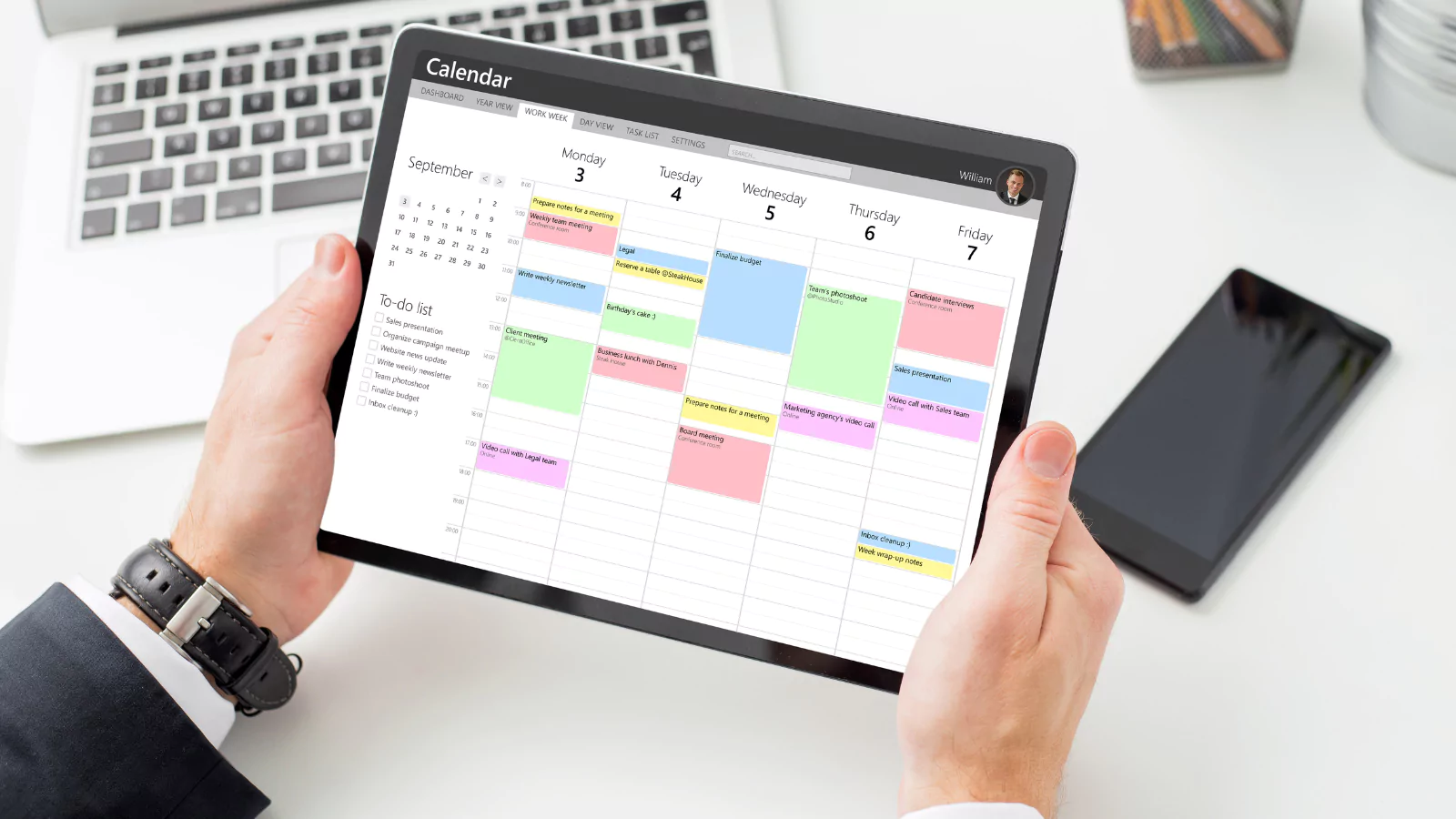 A social media calendar template is essential for maintaining organization and ensuring a steady flow of content. Here’s how it can benefit your strategy:
A social media calendar template is essential for maintaining organization and ensuring a steady flow of content. Here’s how it can benefit your strategy:
- Consistent Posting Schedule
- Plan and schedule posts in advance to maintain regular engagement.
- Consistency helps build trust and keeps your brand top of mind.
- Capitalize on Important Dates
- Mark key dates, holidays, and events relevant to your audience.
- Create timely content around these dates for increased relevance and engagement.
- Organized Content Planning
- Use the calendar to visualize your content strategy.
- Ensure a balanced mix of content types and themes.
- Improved Time Management
- Plan to avoid last-minute content creation.
- Allocate tasks efficiently among team members.
- Enhanced Engagement
- Schedule interactive posts (e.g., polls, Q&A) to foster community engagement.
- Monitor and respond to audience interactions promptly.
With a social media calendar template, you can maintain a consistent and organized approach to your social media efforts. Now, let’s move on to the importance of leveraging social media automation tools, like Socinator, to streamline your strategy and save time.
Social Media Automation Plan Template
 Efficiency is key when managing multiple social media accounts. Here’s how to create an effective social media automation plan template:
Efficiency is key when managing multiple social media accounts. Here’s how to create an effective social media automation plan template:
- Identify Repetitive Tasks
- List tasks that can be automated (e.g., scheduling posts, liking content).
- Choose Automation Tools
- Select tools that fit your needs. Socinator is a powerful option to streamline efforts.
- Schedule Posts
- Plan and automate posts in advance to ensure consistent activity.
- Automate Engagement
- Use tools to auto-like, follow, and interact with relevant users.
- Set Up Monitoring
- Automate monitoring of mentions, comments, and messages for timely responses.
Socinator can significantly enhance your strategy by simplifying these processes, allowing you to focus on creating quality content.
Socinator: Your Social Media Automation Partner
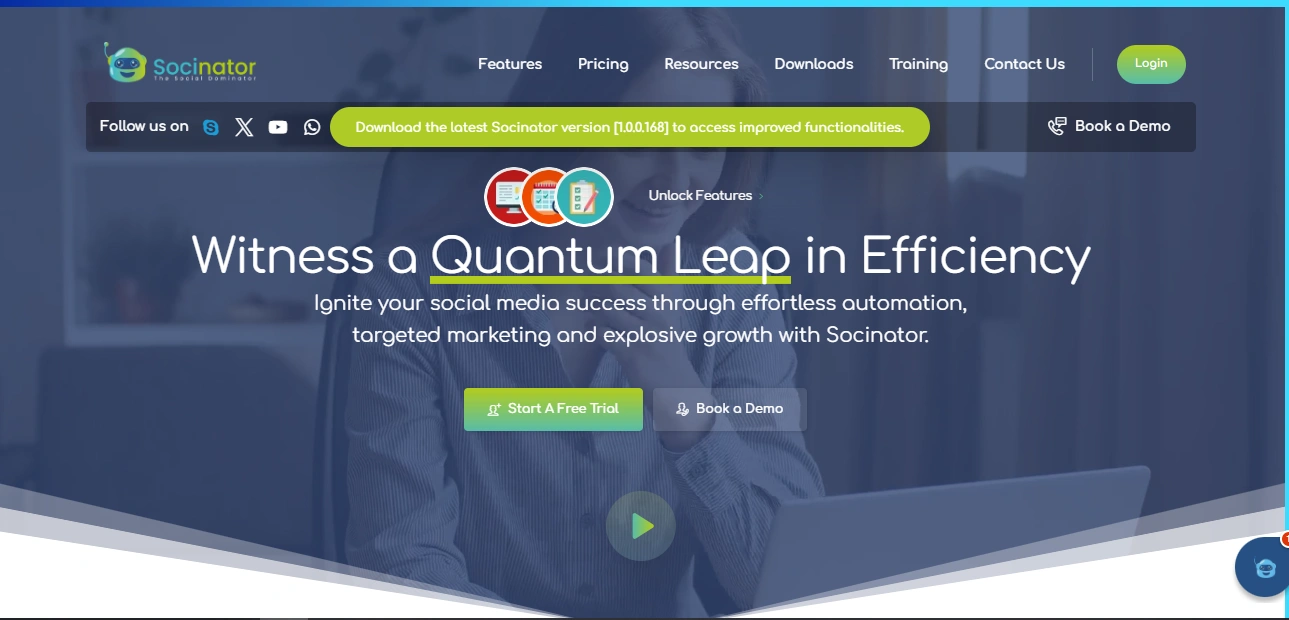 As you strive to optimize your social media plan efforts, having the right tools can make a significant difference. Socinator is designed to simplify your social media management. Here are the key features of Socinator:
As you strive to optimize your social media plan efforts, having the right tools can make a significant difference. Socinator is designed to simplify your social media management. Here are the key features of Socinator:
Automated Posting and Scheduling: Schedule and automate posts across multiple social media platforms like Facebook, Instagram, Twitter, LinkedIn, and Pinterest, ensuring consistent content delivery without manual effort.
Advanced Analytics and Reporting: Track your social media performance with detailed analytics and reports. Monitor engagement metrics, follower growth, and other key performance indicators (KPIs) to refine your strategy.
Audience Targeting and Engagement: Identify and target specific audiences based on demographics, interests, and behavior. Automate interactions like liking, commenting, following, and unfollowing to engage with your audience more effectively.
Auto Direct Messaging: Automate direct messages to new followers, helping you establish quick connections and engage with your audience more personally.
Keyword and Hashtag Monitoring: Monitor specific keywords and hashtags relevant to your niche, allowing you to stay on top of trends and join relevant conversations.
By leveraging the capabilities of Socinator, you can streamline your social media plan and achieve better results. Moving forward, let’s explore the benefits of a social media performance report template to track your success and make data-driven decisions.
Social Media Performance Report Template
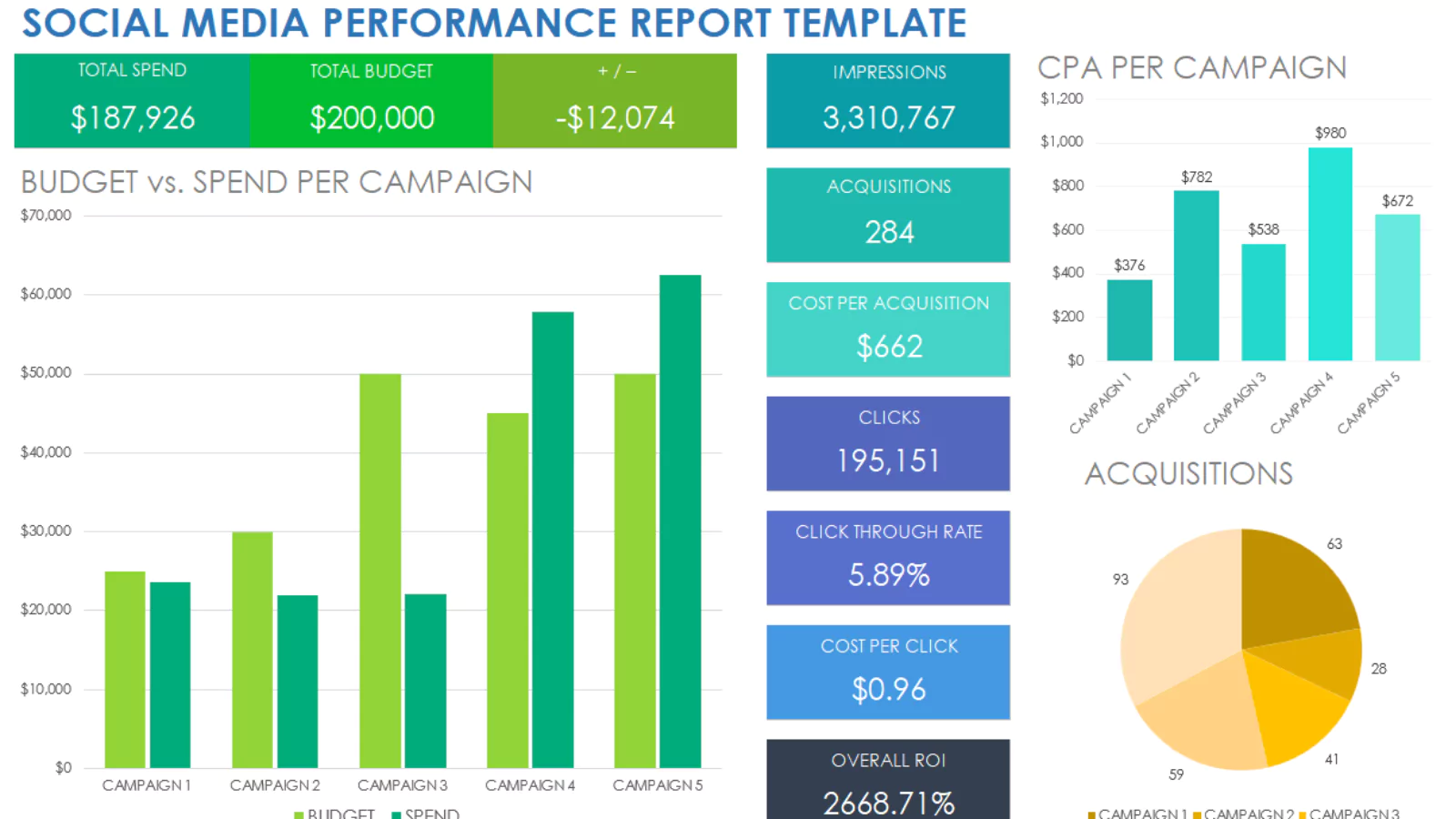 Tracking your social media plan performance is essential for making informed decisions. Here’s a concise guide to creating a social media performance report template:
Tracking your social media plan performance is essential for making informed decisions. Here’s a concise guide to creating a social media performance report template:
- Define Key Metrics
- Identify crucial metrics (e.g., engagement, reach, conversions).
- Gather Data
- Collect data from social media analytics tools.
- Utilize tools like Socinator for detailed reporting.
- Analyze Results
- Compare current performance with previous periods.
- Spot trends, patterns, and anomalies.
- Visualize Data
- Present data using charts and graphs.
- Highlight key insights.
- Set Benchmarks
- Establish performance benchmarks.
- Use these to measure future success.
- Identify Areas for Improvement
- Determine effective strategies and areas needing adjustment.
- Set actionable goals.
- Create Actionable Insights
- Provide recommendations based on analysis.
- Outline steps to achieve objectives.
- Regularly Update Report
- Continuously monitor and update performance.
- Adjust strategy based on new insights.
Using this social media plan template helps you track success and make data-driven decisions. Next, discuss the importance of collaborating with influencers and how an influencer collaboration plan template can help manage these valuable relationships.
Also Read,
9+ Social Media Calendar Ideas That Will Maximize Your Reach
Designing a Powerful 30-Day Social Media Plan for Your Brand
Influencer Collaboration Plan Template
 Collaborating with influencers can expand your reach and credibility. Here’s a concise guide to creating an influencer collaboration plan template:
Collaborating with influencers can expand your reach and credibility. Here’s a concise guide to creating an influencer collaboration plan template:
- Identify the Right Influencers
- Research influencers in your niche with a strong following.
- Evaluate their engagement rates, content quality, and audience demographics.
- Define Collaboration Goals
- Set clear objectives for the collaboration (e.g., brand awareness, product promotion).
- Align goals with your overall social media plan.
- Reach Out
- Craft personalized outreach messages to potential influencers.
- Highlight mutual benefits and propose collaboration ideas.
- Negotiate Terms
- Discuss the scope of work, deliverables, and compensation.
- Ensure both parties agree on expectations and timelines.
- Plan Content
- Collaborate on content ideas that align with your brand and resonate with the influencer’s audience.
- Ensure the content is authentic and engaging.
- Track Performance
- Monitor key metrics such as engagement, reach, and conversions.
- Analyze the impact of the collaboration on your social media plan’s performance.
- Maintain Relationships
- Stay in touch with influencers after the collaboration.
- Explore opportunities for future partnerships.
With this template, you can effectively manage influencer collaborations and amplify your brand’s voice as part of your overall social media plan. Now, let’s discuss how to integrate these templates into your social media plan to achieve the best results.
Conclusion
Integrating these social media plan templates into your strategy can significantly enhance your online presence and drive impactful results. Combining these templates with Socinator’s powerful features, you can streamline your efforts, engage more effectively, and achieve your business goals.
These templates offer a structured approach to content creation, scheduling, performance tracking, and audience engagement. They help you stay organized and ensure that your social media activities are aligned with your overall marketing objectives. With Socinator, you can automate repetitive tasks, gain valuable insights through advanced analytics, and effectively target and engage your audience.
Start building your social media plan today and watch your brand thrive. By leveraging these tools and strategies, you can create a strong, cohesive, and impactful social media presence that drives success and growth for your business.
FAQ Section
1. How to create a social media plan?
Creating a social media plan involves several key steps: defining your objectives, identifying your target audience, choosing the right platforms, planning your content, scheduling posts, and tracking performance. A well-structured plan ensures consistency and helps achieve your marketing goals.
2. What are the benefits of using social media automation tools?
Social media automation tools save time by scheduling posts, automating engagement, and providing detailed analytics. They help maintain a consistent online presence and allow you to focus on creating quality content and engaging with your audience.
3. How can I measure the success of my social media campaigns?
Success can be measured by tracking key performance indicators (KPIs) such as engagement rates, reach, follower growth, and conversions. Using analytics tools, you can analyze these metrics and adjust your strategy based on insights.
4. What are some tips for increasing engagement on social media?
To increase engagement, create high-quality, relevant content, use visuals, interact with your audience by replying to comments and messages, run polls and contests, and post consistently. Understanding your audience’s preferences can also help tailor your content.
5. How often should I conduct a social media audit?
It’s recommended to conduct a social media audit at least once a quarter. Regular audits help you evaluate your current efforts, identify strengths and weaknesses, and adjust your strategy for continuous improvement.



